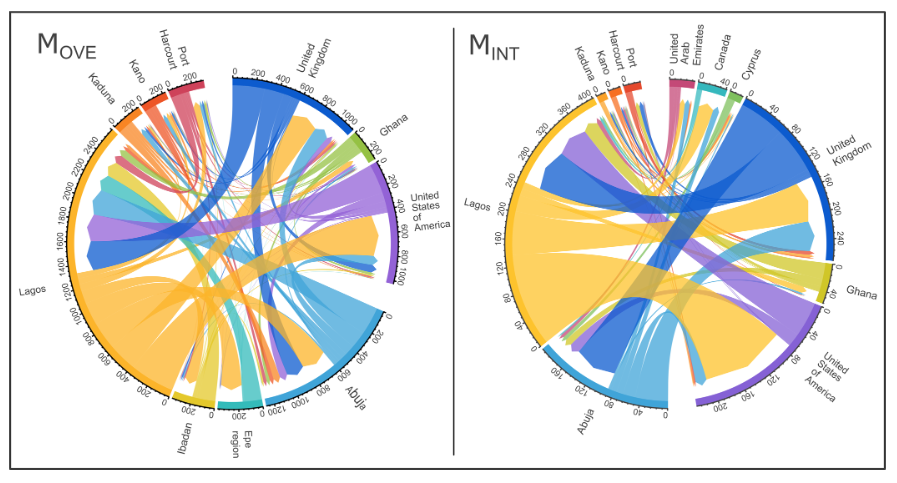
We wish to announce yet another recent publication from the MIGRAWARE Project.
Abstract
Geolocated social media data hold a hitherto untapped potential for exploring the relationship between user mobility and their interests at a large scale. Using geolocated Twitter data from Nigeria, we provide a feasibility study that demonstrates how the linkage of (1) a trajectory analysis of Twitter users’ geolocation and (2) natural language processing of Twitter users’ text content can reveal information about the interests of migrants. After identifying migrants via a trajectory analysis, we train a language model to automatically detect the topics of the migrants’ tweets. Biases of manual labelling are circumvented by learning community-defined topics from a Nigerian web forum. Results suggest that differences in users’ mobility correlate with varying interests in several topics, most notably religion. We find that Twitter data can be a flexible source for exploring the link between users’ mobility and interests in large-scale analyses of urban populations. The joint use of spatial techniques and text analysis enables migration researchers to (a) study migrant perspectives in greater detail than is possible with census data and (b) at a larger scale than is feasible with interviews. Thereby, it provides a valuable complement to interviews, surveys and censuses, and holds a large potential for further research.
Read Full Article Here.
Lead Author: Johannes Mast (PhD Candidate on the MIGRAWARE Project)